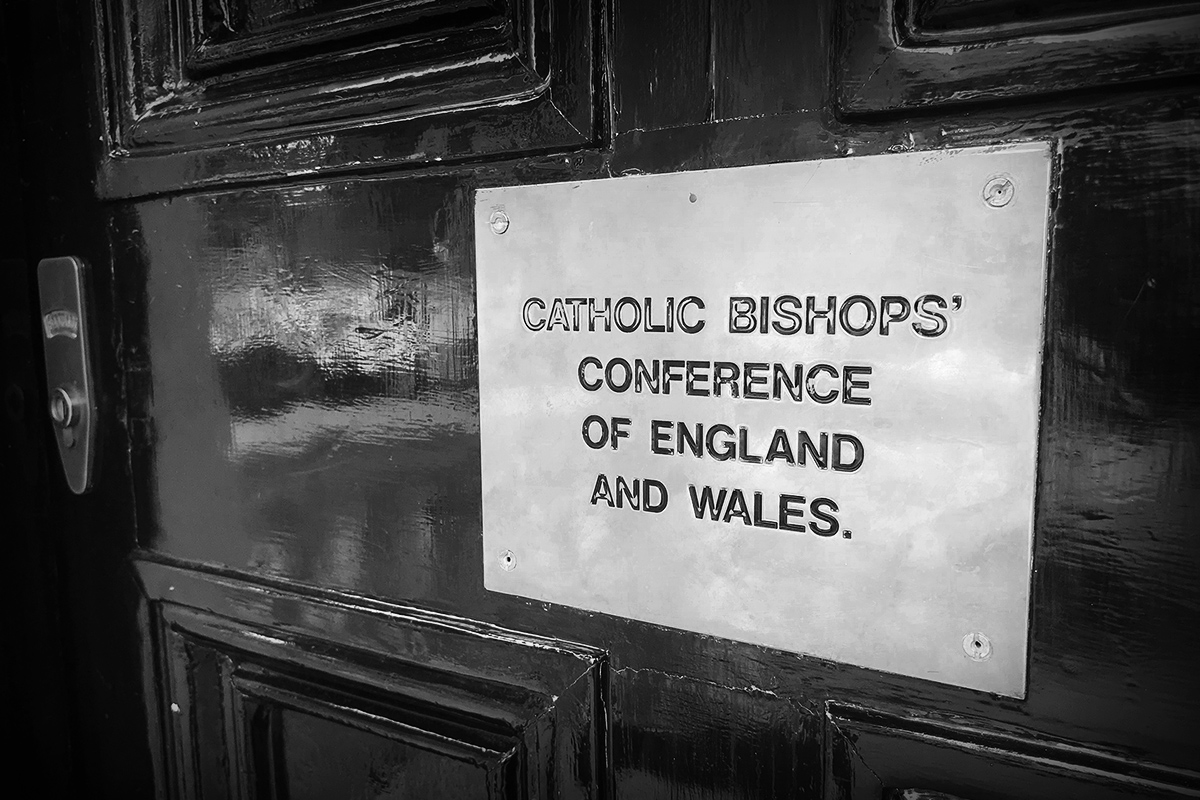
What are the pressing concerns of UK Catholic bishops in relation to current questions regarding Europe? Henry Longbottom SJ met with three bishops to find out.
Between 25-26 September, COMECE hosted a two-day visit by a delegation from the Catholic Bishops’ Conference of England and Wales (CBCEW) department for International Affairs. After a welcome by COMECE General Secretary Olivier Poquillon OP and briefing on COMECE’s activities, the delegation met with Apostolic Nuncio to the EU, Archbishop Alain Paul Lebeaupin and prominent EU politicians and officials. The following account is based an interview with three episcopal members of the delegation, Bishop Tom Burns, Bishop Nicholas Hudson, and Bishop Paul McAleenan.
The Catholic Church’s role in conversations about future UK-EU relations
Bishop Hudson, auxiliary bishop for Westminster diocese and a member of the CBCEW committee for European Affairs drew on Pope Francis’ call for Europe to rediscover its vocation to promote human dignity and pointed out that Europe is not just an economic unity but more importantly a human project. He considers that the Church’s role is to highlight this point in discussions and decisions regarding the future of Europe.
Bishop Burns, who leads the Welsh diocese of Menevia, talked about the Church’s role to help guide policy-makers with the ethical dimensions of their work. The Church is well placed to provide guidance on issues of which it has direct experience, for example the refugee crisis. The challenge for the Church is to provide timely and intelligent advice to politicians and officials who must make decisions quickly. In relation to defence, ethical dimensions of new forms of military warfare, such as smart weapons and long-range missiles, need to be considered using a pan-European framework.
Bishop McAleenan, auxiliary bishop for Westminster diocese and chairman of the Westminster Caritas advisory committee, emphasised the need to preserve the richness of cultural diversity, which owes much to Britain’s membership of the EU. Highlighting the transformation of the Republic of Ireland’s economy over the past 30 years, he also emphasised the benefits of the EU’s role in promoting solidarity towards poorer nations.
Particular concerns about a possible Brexit
The prospect of Britain’s withdrawal from the EU raises a plethora of issues, not least profoundly social ones. As pastors of diverse, and often multi-ethnic, communities, what did the bishops consider to be of particular concern from a Catholic perspective?
Bishop Hudson highlighted concerns regarding Britain’s adherence to human rights standards and the problem of the potential for uneven standards across European countries. This is particularly relevant to prisoner rights, of special interest to the Church since a high proportion of non-UK EU citizens serving prison sentences in Britain are Roman Catholic. Measures upholding the human dignity of prisoners and their families have often been instigated at an EU level. In a post-Brexit scenario, pressure will need to be applied to ensure the continuation of rules such as those allowing convicted persons to express a preference for which country he or she serves a prison sentence. Such measures protect society as a whole since they facilitate integration into society.
Reflecting on his experience as bishop for the military forces, Bishop Burns spoke about the cultural richness of being in contact with other European cultures. Bishop Burns emphasised the way in which Europe acts as a “huge vineyard of cultures” for military personnel based in other EU countries. The opportunity to learn from others, which permits an exchange of ideas and breaks down prejudices is something precious and should never be lost. Bishop Burns pointed out that closing borders never aligns to the interests of the Church, which is always universal in its outlook.
The purpose the Brussels visit
Bishop Burns explained that the primary purpose of the delegation’s visit was to learn more about the work of COMECE, and discern ways in which the CBCEW can augment COMECE’s current and future activities. He expressed his consolation that organisations like COMECE exist, standing at the frontier between policy making and the lives of ordinary people, doing all they can to promote the common good in public life. These reflections were echoed by Bishop McAleenan who believes that the Church’s work of promoting values in public policy is part of its role in “walking with the people”.
Bishop Hudson stressed that regardless of the UK’s status in relation to the EU, the Catholic Church in England and Wales will always be part of the European Church. The existing relationship between the CBCEW and the life and work of COMECE will therefore continue and indeed should be strengthened.
The bishops agreed that their visit was well-timed given the forthcoming COMECE-Vatican “Rethinking Europe” Dialogue that will take place in Rome in late October.
Henry Longbottom SJ
JESC
Interview with Mgr William Kenney, Auxiliary Bishop of Birmingham
Interview with H.E. Mgr. Paul McAleenan, Auxiliary Bishop of Westminster
Interview with H.E. Mgr. Tom Burns, Bishop of Menevia
Interview with H.E. Mgr. Nicholas Hudson, Auxiliary Bishop of Westminster